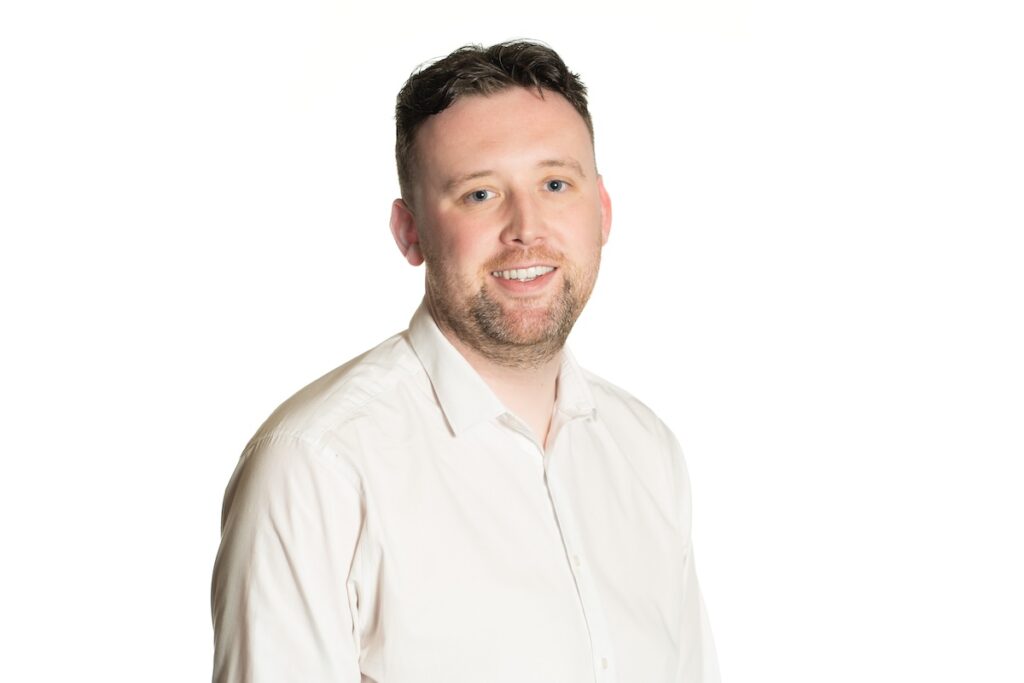Digital voice recording and transcription technologies are advancing at a rapid rate. Services that can accurately record voice conversations – whether in person, phone or internet enabled – have improved from low levels of accuracy just a few years ago, to well over 80 per cent now.
Using conversational AI, the systems are now in widespread use across industry sectors, including healthcare, financial services, telecoms, legal and retail.
But thanks to “ambient AI”, a new era of generative capabilities – delivering more sophisticated insights from the voice inputs captured – is approaching. Paisley-based Voice Technologies is one company breaking ground with this new tech, which adds layers of intelligence to digital voice technologies – allowing clients in multiple sectors to benefit.
Martyn Ross, business development director for the firm, says healthcare, especially, is starting to recognise the potential for not only speeding up the process of writing patient notes, but even, in the future, supporting clinical decision-making.
“The conversation is recorded in the usual way, with the transcript provided. With ambient AI, that would still happen, but the difference is that it would offer the clinician prompts as to what the issue might be,” explains Ross, whose company deploys the Dragon Medical One (DMO) solution.
In accuracy terms, DMO claims up to 99 per cent effectiveness, when used with a good quality microphone. And unlike previous versions of the software, the platform doesn’t have to get used to the users’ voices. “I think that was why initially people were frustrated with speech recognition platforms,” adds Ross.
“At first, they were having to make too many corrections to the text. But if you use a high-quality microphone, like the Phillips SpeechMike Premium, there is no reason why you shouldn’t be getting 99 per cent.”
Once adopted, the solution can help clinicians clear their patient backlogs, too.
“We worked with one customer which had a big backlog of patient letters. When patients left the hospital, they were told they would receive a copy of the letter, but given the amount of admin they were having to get through, it was taking weeks before they could even get round to dictating the letter,” says Ross.

director at Voice Technologies
“When we implemented speech recognition, it reduced the turnaround time by 40 per cent. Not only is that a benefit for productivity, it allows clinicians to spend more time with their patients, and reduces things like work stress and burnout.
“And to flip it on its head, the patient also says that the experience was better, because that interaction with the clinician is much more personable; their focus is on them. So, from a patient’s perspective, they had a better overall experience.”
Not to mention removing the thorny issue of a doctor’s handwriting. “It just improves accuracy all round,” Ross adds.
The solution has been used by health boards across Scotland. It’s even been used by NHS Lanarkshire in a speech and language therapy setting, overcoming inherent challenges in patient interaction, to prove a worthy clinical aid.
It has a wide range of integration possibilities, with the ability to work with more than 200 clinical systems – including large-scale electronic health record platforms like Patient- Track, Cerner and Epic. It can also support GP systems such as Emis or Vision.
And with the ambient capabilities set for a full product release in the UK in May, the interest in the platform is likely to grow.
“The biggest challenge is the fear of change, but as AI systems prove their value, I think the adoption will follow suit,” says Ross.
“Of course, there are challenges. As well as the clinical side, you’ve also got the impact on the clerical teams, but I think AI is gradually being accepted in hospital environments as a tool that can bring productivity and diagnostic gains. In the next 12 to 18 months, we only expect that interest to grow.”
Partner Content in association with Voice Technologies